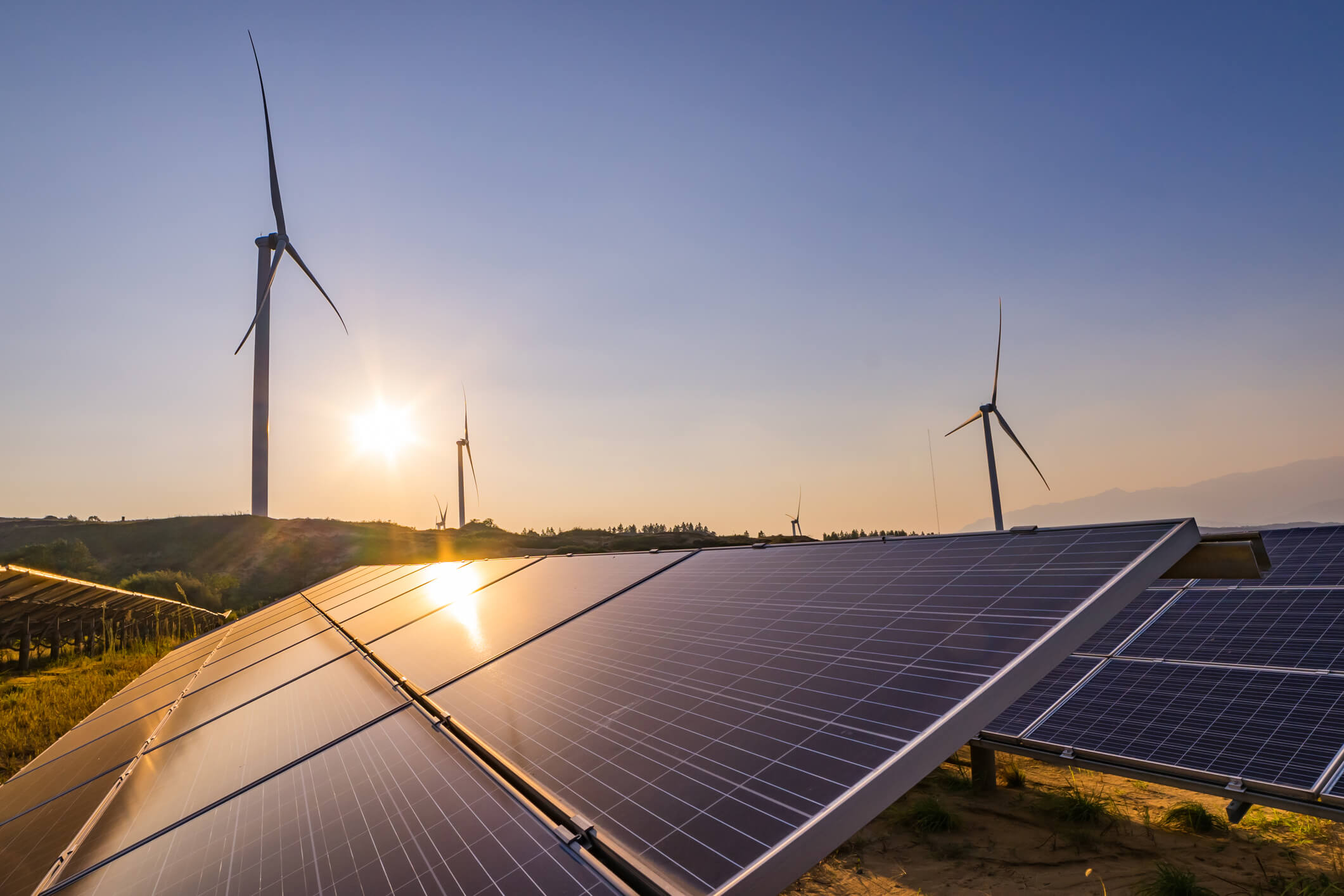

Energy efficiency, sustainability, and green aren’t just trendy buzzwords – they represent a conscientious and cost-saving practice that successful businesses are embracing in increasing numbers. In the past, the manufacturing and industrial sectors have led the way in developing strategies to increase energy efficiency. Recently, though, commercial businesses have begun making great strides in this more environmentally and financially responsible direction.
Even simple changes like turning off lights and unplugging appliances that are not in use are small but important steps toward a more sustainable business. More substantial energy upgrades entail upfront financial costs, but businesses that take the plunge are seeing fantastic returns on their investment and are inspiring other companies to prioritize energy efficiency going forward.
Your business can look forward to some important benefits when you increase your energy efficiency. These benefits fall into two main categories — financial and social. Both of these categories should matter immensely to any business that wants to improve its bottom line and its public image.
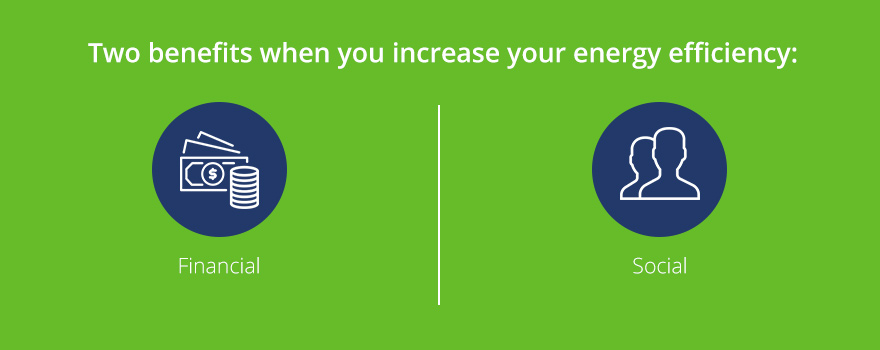
Many, if not all, CFOs realize they can save some money through energy-efficiency initiatives, but what they may not know is just how significant the financial gains can be. Let’s look at several aspects of financial benefits your business can expect after increasing energy efficiency:
Perhaps the most obvious financial benefit of energy efficiency is that it reduces your business’s utility costs. According to the Environmental Protection Agency (EPA), energy-efficient buildings that have earned the ENERGY STAR label use less energy than average buildings by 35 percent. Even for smaller businesses, this is substantial savings, and for large companies, 35 percent could mean astronomical savings.
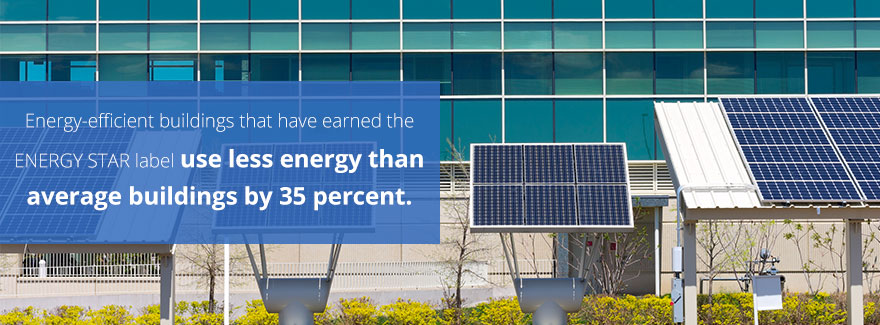
Even if your business can’t afford significant upgrades right away, you can start by implementing strategies that cost you little or nothing, and then use the money you’ve saved from those strategies to invest in more technological improvements. It won’t take long for the initial improvement costs to pay for themselves. Reduced energy costs mean increased profit margins, which in itself should be enough incentive for any business to invest in energy efficiency. However, as we will see, there are plenty of other great reasons to work towards becoming more energy efficient.
Productivity can be measured in many ways depending on your business. In every measure, productivity goes up when energy waste goes down. Reducing your costs while maintaining the same level of production means that you’re getting more work done or manufacturing more product for the same amount of energy usage. In some cases, your output can even increase.
Energy efficiency initiatives have the potential to boost employees’ productivity by enhancing their working environment and even their health. According to the International Energy Agency (IEA), maximizing your building’s energy efficiency through improving insulation and installing more efficient HVAC, appliances and lighting creates a healthier and more inviting working environment. It’s no surprise that employees who feel their companies care about their health and comfort tend to be more motivated to perform at their highest level.
And working in healthy conditions can mean employees miss work less and require less medical care. The health benefits of working in a sustainable facility are very real. You can expect your employees to be healthier overall when they consistently have good thermal quality and air quality and are not exposed to excessive cold, heat, pollution or dampness. Of course, healthier employees can also reduce your business’s health care costs over the long-term.

The EPA is the government body entrusted with determining and enforcing environmental regulations on individual, governmental and commercial entities. Complying with the EPA’s regulations and recommendations is a must for any company seeking to become energy efficient. While the prospect of delving into the many different rules and regulations the EPA has in place may be intimidating, it is a worthwhile pursuit for both legal and financial reasons.
To better understand what the standards are and how to comply with them, check to see which EPA regulations are relevant to your company and what state or local laws you may also need to comply with. Regardless of what regulations apply to your business, being proactive in making your business more environmentally responsible helps you to stay ahead of the game to ensure that you’re not only meeting current requirements but future ones as well. As federal or local environmental initiatives progress, you won’t have to scramble to meet new standards.
Unfortunately, the U.S. wastes more energy than any other country. In some respects, the U.S. marketplace is fixated on making vehicles, appliances, and other products more efficient. However, many individuals and businesses may not be as conscious of small ways they waste energy each day. Investing in more energy-efficient systems for your business will mean you will waste less energy by default, but you can reduce waste even more by raising your employees’ awareness of ways to use energy more intentionally.
Waste is something that all individuals and companies should be working to minimize. Without even considering the negative environmental impact of waste, including waste of physical materials and energy, you should consider how your company’s profit margins are affected by waste across all levels of your operations. Waste is something that energy-efficient companies work diligently to eliminate from their day-to-day practices, and the increase in profits for these companies provide all the evidence necessary to justify making some changes your own business practices.
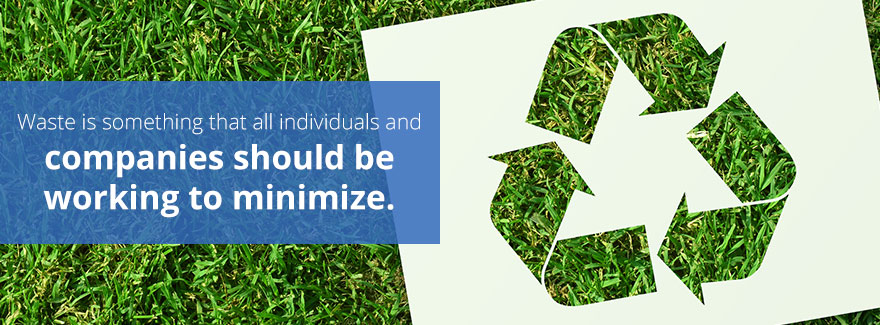
While the financial benefits alone build a convincing case for improving your business’s energy efficiency, it doesn’t stop there. Money isn’t everything — your reputation is also an important aspect of your business. Here, too, energy efficiency can help. Let’s look at some of the social benefits of becoming a sustainable business:
Energy efficiency can improve your brand image significantly because many consumers prefer to do business with companies they feel are acting ethically toward society and the environment. Market research from 2009 showed that half of consumers are willing to pay premium prices for green products. A product is considered green if it is produced through environmentally responsible means. Aside from factors like the ingredients or materials used in a product, the energy-efficiency of the manufacturing process is a crucial aspect of whether the product can be considered green.
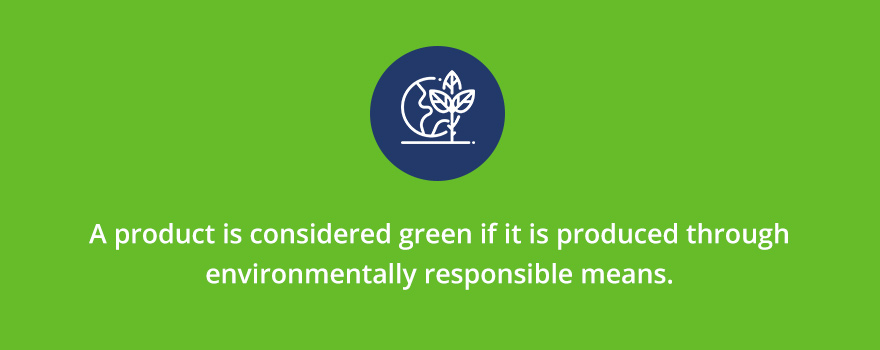
Manufacturing isn’t the only sector where being green matters. Industrial and commercial businesses can also attract more customers through demonstrating a commitment to sustainability and environmental concerns. In 2017, a survey by the Natural Marketing Institute found that 58 percent of consumers took a company’s efforts toward sustainability into account when determining whether to purchase goods or pay for services from a company.
People are motivated to give their money to companies that share their priorities and values and may even feel as though they are contributing to the public good by supporting a company that promotes green practices and social responsibility. With this added benefit for the consumer, your energy-efficient company becomes not only more profitable but also more competitive in the market in which you operate due to the added moral benefit you offer consumers. The ongoing increase in social awareness and concern over the environment means that there has never been a better time for your company to begin the transition to energy efficiency.
Beyond attracting socially responsible consumers and clients, energy efficiency also stands to make your company a more desirable career choice for potential job applicants. Millennials, in particular, place enormous emphasis on a company’s corporate culture, social awareness, and environmental activism. One study found that three-fourths of Millennials surveyed were even willing to take a pay cut to work for a company that is socially and environmentally responsible.
Energy use is an important part of any business’s environmental impact, so it stands to reason that companies who commit to using less energy will appeal to applicants who care about working for an environmentally responsible company. Attracting more applicants makes it more likely that you’ll be able to choose the best workers to make your business even more successful. And hiring an employee who cares about your energy priorities not only means they will take pride in being a part of your company but that they will also be motivated to help you continue to advance these practices.
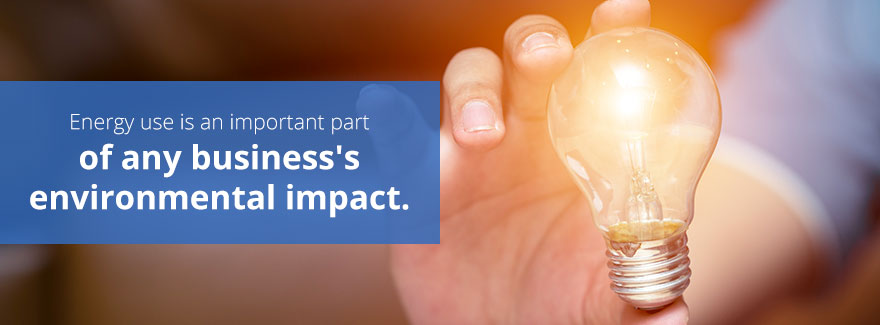
With all of the new profits from environmentally-conscious customers, the increased productivity from happy and healthy employees, the fresh innovations from new millennial hires and the costs saved by using less energy overall, you can likely expect very positive meetings with your shareholders. You might even notice more people wanting to become shareholders, as the vast majority of market data points to the benefits of investing in energy-efficient businesses. Looking at the change in share prices over time has demonstrated that an investment in a value-weighted portfolio of a more environmentally sustainable company will grow more exponentially than an investment in a less environmentally-sustainable company.
Energy-efficiency can also indicate larger aspects of your business that appeal to shareholders, like the fact that you’re open to embracing new technology and dedicated to continually running your business more effectively. Financial gains, less waste, and good social standing all mean greater returns for shareholders with the good sense to invest in companies that actively pursue energy efficiency.
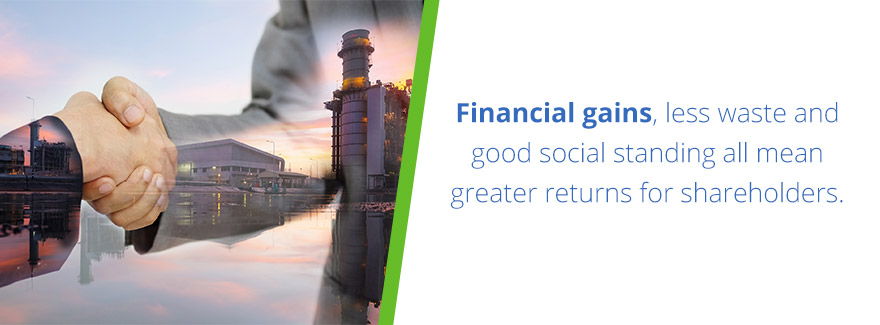
When you decide to shift to energy efficiency, spend time researching to determine the best options for your business. No two businesses are alike, and you will find the greatest benefit from ensuring the decisions made for your company are tailored to your unique wants and needs. Depending on the size and needs of your operation, you may even find it a good investment to bring in a consultant to make recommendations based on your specific situation. However, here are five general guidelines and tips to get you started:
When choosing an energy provider, there are multiple factors to take into account. An obvious one is the rate you would be paying for the services or types of fuel you require. Comparing pricing plans from a few different providers is necessary to ensure you get the best deal for your company. At Shipley Energy, we offer several different pricing plans. We have commercial budget and variable price plans for all energy types. We also offer a cap price plan for oil and propane and a fixed price plan for natural gas, bio-heat, and propane. Aside from the immediate concern of cost, take the time to learn about a provider’s reputation compared to those of other providers. Ideally, look for an energy supplier that is an A+ accredited business with the Better Business Bureau and is a member of The American Coalition of Competitive Energy Suppliers (ACCES). Shipley Energy checks both of these boxes.
Aside from simply using less energy, the public often associates environmental responsibility with using renewable, or green, energy. While the move toward energy efficiency does place an understandable importance on renewable forms of energy such as wind, solar and water, not all companies are positioned either legislatively or topographically to take advantage of these forms. For example, a headquarters in Tennessee may find solar panels are not a viable option due to physical and legal obstructions present in that state, while a California company may garner tax benefits from their installation. It is vital to make sure that you are aware of the physical and legal limitations in place before pursuing renewable energy options. If generating renewable energy isn’t an option on your site, you can purchase energy from a renewable source through your energy provider.
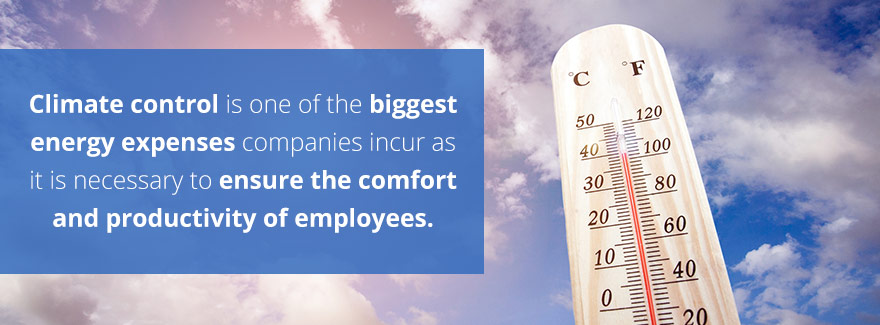
Climate control is one of the biggest energy expenses companies incur as it is necessary to ensure the comfort and productivity of employees. Make sure your HVAC system is not only keeping your employees comfortable but also that it is doing so in the most cost-efficient manner possible. Partly, this can be achieved by using your existing HVAC system more intentionally to conserve energy. However, upgrading or optimizing your HVAC system to take advantage of advancements in the technology is an even better step to take. If you decide to upgrade your current system, have it installed by a technician who has the expertise to install it properly. This is especially important since improper installation can cause your system to function sub-optimally. It could even reduce the system’s efficiency by 30 percent.
In addition to updating your HVAC system, consider whether the appliances used by your employees in the day-to-day operations of your company are performing to the highest standards of energy efficiency. Computers, printers, microwaves, refrigerators, copiers and more are all devices you should consider when becoming a greener company. Looking for appliances marked with the ENERGY STAR label is a good starting point for replacing any inefficient or outdated appliances your company uses. Even though these devices may seem small compared to more energy-intensive systems, like your HVAC, these small appliances can get used quite frequently, so their energy consumption adds up.
Remember the human element when instituting a new energy-efficient policy in your company. Employees need to be informed not only of the new practices and appliances they will be expected to use but also why those things are important for the company and society at large. Employee buy-in is critical if your company is to enjoy the full benefits of energy efficiency. There are numerous strategies available to you to generate employee buy-in, and the best option will depend entirely upon your employees and the company culture that is already established. One way you can use your green initiative to promote a sense of competitive fun and community among your employees is to track energy usage and reward individuals or groups who use less energy.
Many companies hesitate to take the energy-efficient plunge because they believe the cost to be too great for the meager return they expect. This is mistaken on both counts. As we have established, the potential return on investing in energy efficiency is massive and take many forms, both financial and social.
Concerning the cost, energy efficiency is not nearly the giant expense many people think. Many of the best practices for energy efficiency are low- to no-cost. Of course, to truly adopt energy efficiency and environmental responsibility as foundational aspects of your company culture, you will likely be making a more substantial investment than turning off the lights and changing the thermostat. But even then, the return on investment negates essentially all risks associated with energy efficiency.
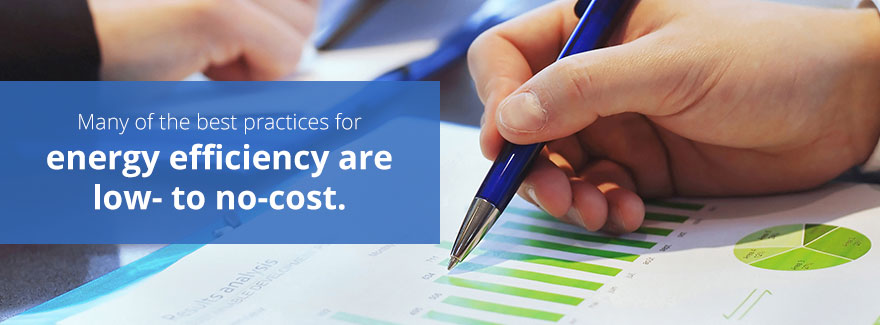
While it is obviously difficult to generalize what the return on investment is for energy efficiency due to the unique nature of each company’s energy needs, there are some general things to keep in mind when thinking about your ROI. The first is that any decrease in energy costs will be an ongoing and cumulative benefit to your company. Also, the government regulations by which you must abide concerning your energy efficiency don’t come without benefits. There are many different possibilities available to companies in terms of tax breaks and benefits to incentivize responsible and sustainable commercial energy consumption. Finally, the increased productivity associated with energy efficiency naturally translates into increased revenue, making the energy-efficient route too rewarding not to invest.
Although smaller companies might find the upfront cost of energy-saving steps like HVAC optimization or appliance replacement daunting, it is important to keep in mind that the savings accrued by these changes can then be used to further the energy-efficient direction you’ve set for your company. This means that the extra funding you find at the end of each month after making a few environmentally-conscious changes creates a feedback loop of capital that can then be used to make more and more improvements until your company is running at peak efficiency.
You know energy efficiency is good for your business & can save you money, but what should your next step be? Sometimes just changing providers is a great first step! If you have questions or want to learn more about potential changes your business can make, contact Shipley Energy to learn more about the many ways we can help your business become more energy efficient. You can also request a quote online.
For nearly nine decades, we have made a name for ourselves as a trusted energy source. We are the leading energy provider in the Mid-Atlantic region of the U.S. and operate brands that extend to other regions. We can partner with your company to help you streamline the solution to your various energy needs and become a more sustainable, energy-conscious business. You can look forward to many benefits, so become a leader in the move toward a greener marketplace.